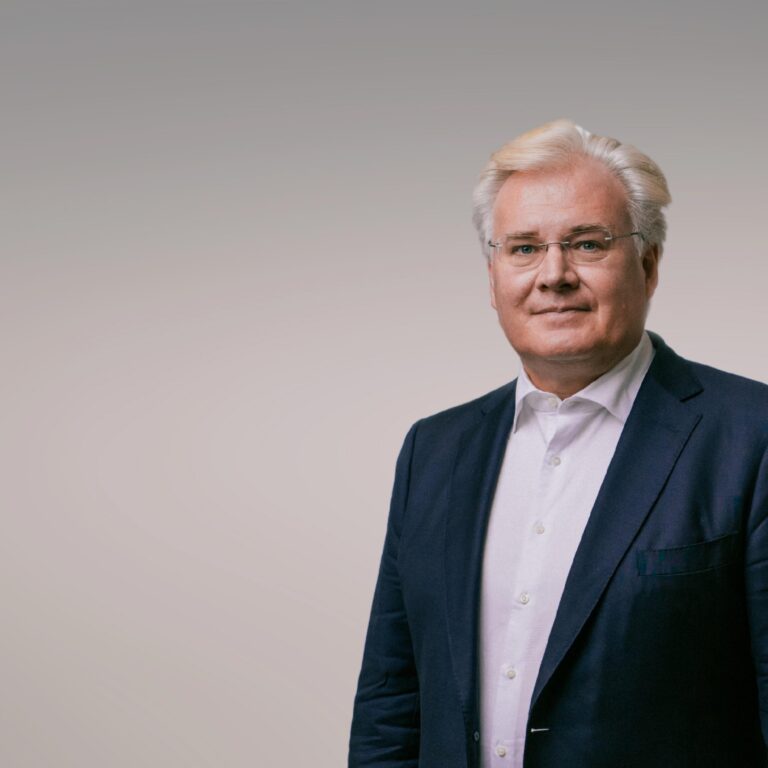I stepped out of the elevator in The Spiral, a 66-floor skyscraper overlooking the Hudson River, and my eyes were immediately drawn to the panoramic view of the midtown skyline in New York City. Pretending to look calm and composed, I was in fact surfing some waves of nostalgia. It was two decades since my LL.M year at NYU, filled with dreams of a big career in Big Law. Back then, entering a shiny and beautiful law firm lobby like this would have meant an awesome opportunity.
Now a storyteller with a law degree, I was there to meet Deborah Enix-Ross, a Senior Adviser to the International Dispute Resolution Group of Debevoise & Plimpton, and the President of the American Bar Association, the world’s largest voluntary association of lawyers, judges, and other legal professionals. My awesome opportunity was to interview her for the Finnish Bar Association‘s podcast Pääkäsittelyssä (“Main Hearing”) on diversity and attorney wellbeing.
Thrilled to begin the interview, for which I had been mentally preparing for weeks, I quickly realized that I was not able to hook my recording gear to any electricity outlets in the ultramodern meeting room! During the next unplugged and unplanned 10 minutes before figuring it all out, I was ready to panic while she tackled the situation with grace and humor. It was her warm presence that set the tone for the whole interview.
We began talking about the significance of diversity in the legal field and the impact of biases and assumptions, and the strategies to address and combat them. We also talked about the importance of civics, civility and collaboration, which are the focus of her term as President of the American Bar Association. Deborah then shared her own path to leadership from all the way uptown in Harlem to all the way downtown to the meeting room we now were. It was not easy, she said, without any role models, but she always had her parents’ hopes and dreams and the love and support of her community. We went on to discuss the frustratingly slow progress in achieving gender balance in the profession and examined the barriers and potential strategies for accelerating the journey towards parity. Moving on to attorney wellbeing, Deborah first talked about the good news and progress made in this area but also of the stigma related to lawyers’ mental health issues. Finally, she shared the reasons why she loves being a lawyer and where she finds hope.
Many things that she said echoed inside my head long after the interview. I warmly recommend listening to the whole episode – for inspiration, interesting insight and empowering words of wisdom. The episode “The Power of Diversity and Attorney Wellbeing” can be found on all music streaming platforms. You can also visit the Finnish Bar Association’s website and listen the episode here.
Civility
“We have to be able to have different viewpoints and to express them in a way that is productive and constructive and not destructive. One of the most common examples that is often cited in the US are the Supreme Court Justices Antonin Scalia ja Ruth Bader Ginsburg. They could’ve not been further apart philosophically, but they were the best of friends. And they were able to do that because, as Justice Bader Ginsburg said: we never tore down each other. We might have attacked ideas, but we didn’t attack each other personally. That’s a lesson we can all learn from.”
We all have biases
“In my example, if people say they don’t see color, I think it’s what you would like to think. But we absolutely see color, we see gender, we see nationality, we have traits that we ascribe to people before they even open their mouth. If you look at me before I say anything, I am a woman of a certain age, with my hair braided in New York. You might think all kinds of things of me, maybe you’ll think I’m a lawyer, maybe you don’t, depending on what I am wearing that day.”
Define – Goal – Measure
“First, there needs to be a common understanding of what we are talking about and how we are defining it. And then, how are we going to make the improvements, where are we going to make them, when are we going to make them, and how long is it going to take. The only way to do this is to have goals and then measure them – and hold people accountable.”


